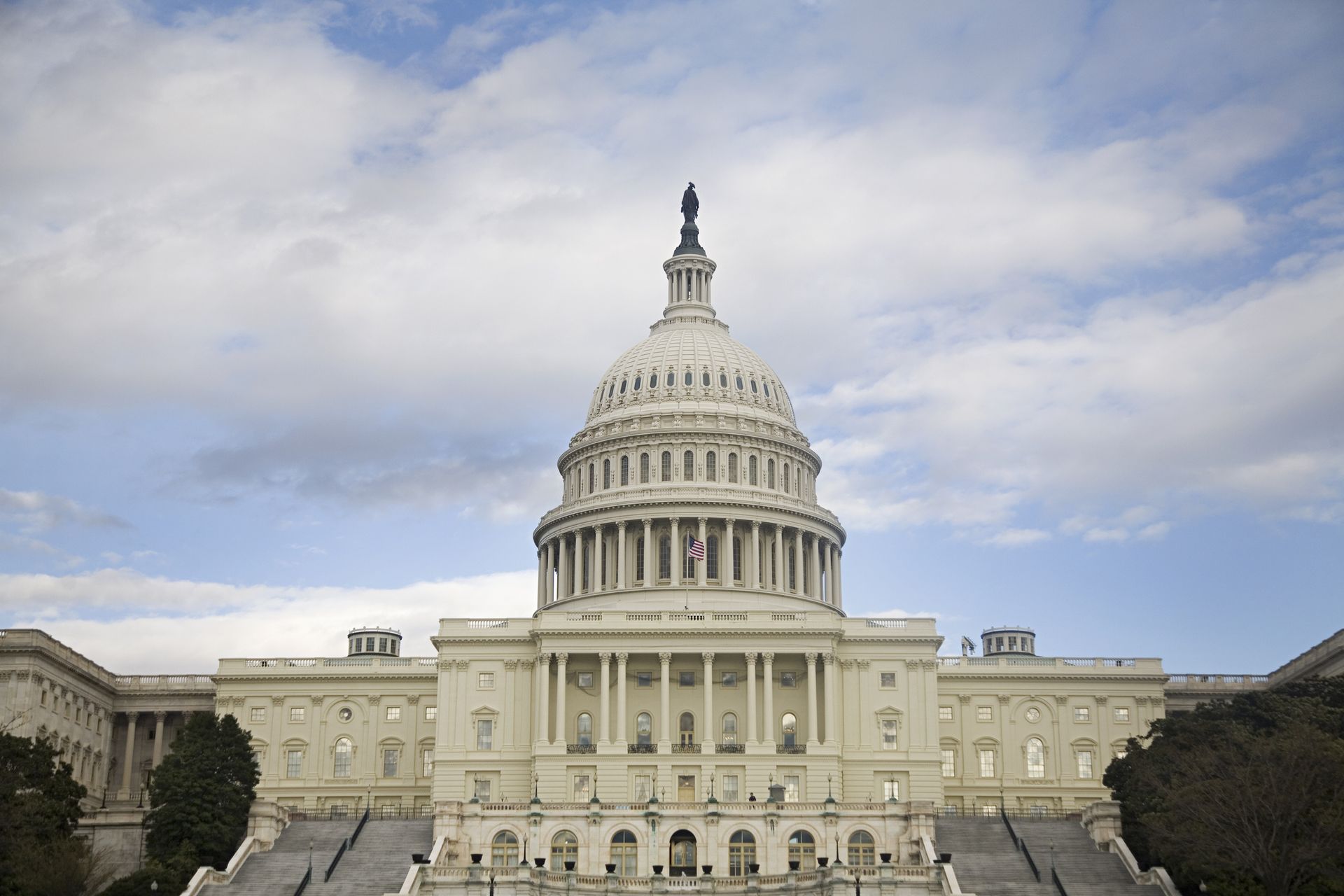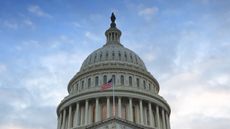What's Happening With the New Child Tax Credit?
The Senate has concerns about the new child tax credit. Here's what that could mean for you.


The U.S. House of Representatives recently voted in favor of a $78 billion tax deal, which includes a newly expanded child tax credit and various tax breaks for businesses.
The tax package now sits with the U.S. Senate, but Sen. Mike Crapo (R-Idaho) has expressed concerns about a provision allowing families to use prior year income to claim the child tax credit (CTC), stating that, as written, the bill has "no near-term path forward in the Senate."
Sen. Crapo argues that using prior-year income would allow families with no income to claim the credit, which would "transform the CTC from primarily working family tax relief into a government subsidy."

Sign up for Kiplinger’s Free E-Newsletters
Profit and prosper with the best of expert advice on investing, taxes, retirement, personal finance and more - straight to your e-mail.
Profit and prosper with the best of expert advice - straight to your e-mail.
However, if the Senate makes changes to the bill, such as removing the prior-year income provision, the tax package would need to return to the House for approval.
Here's what else you need to know.
Child tax credit 2024 update
Some hoped the Senate would pass the new child tax credit before the most recent government funding deadline of March 1, but lawmakers were focused on a short-term funding bill to avert a partial government shutdown. So, right now, it isn't clear whether an expanded child tax credit will become law before the end of the 2024 tax filing season. (The tax package will need 60 votes to pass the Democratic-led Senate.)
However, if the Senate passes the child tax credit this tax season, lawmakers have said eligible families could benefit as soon. That’s because the expanded credit would be retroactive to the 2023 tax year (for tax returns being filed now).
IRS Commissioner, Danny Werfel confirmed that if the bill becomes law, refund adjustments will made within six to twelve weeks, and taxpayers would not need to take any action if they've already filed their 2023 tax returns.
However, the child tax credit expansion, if it does happen, won’t reach as far as it did under President Joe Biden’s American Rescue Plan.
Here's what the expansion would look like under the House version of the bill:
- Ensuring families with lower incomes and multiple children will qualify for a larger portion of the credit.
- Giving families the option to use prior year income to determine the refundable amount of the credit.
- Adjusting the child tax credit amount for inflation.
Given the current framework, policymakers say families with the lowest incomes and multiple children will benefit the most from an expanded child tax credit.
However, even if the new CTC doesn't become law, the refundable portion of the child tax credit will increase for the 2024 tax year. But, the scheduled increase will not benefit families with lower incomes like the proposed child tax credit would.
Bipartisan tax bill child tax credit
The tax package that includes expanding the child tax credit will come with a hefty price tag of approximately $78 billion, and how the expansion would be funded has been key in negotiations between Democrats and Republicans. The clawing back of a pandemic-era tax credit, the employee retention credit (ERC), could in part fund the new child tax credit deal.
The ERC offered incentives to businesses to retain employees, but as Kiplinger has reported, the IRS has seen a significant amount of fraudulent ERC claims. The agency issued a moratorium on processing new claims in 2023 and has already taken steps to allow taxpayers to withdraw or pay back potentially incorrect claims.
However, funding an expanded child tax credit is not the only hurdle the tax package has faced. As mentioned, the bipartisan tax deal also includes compromises on other issues, which include restoring some business incentives from the Tax Cuts and Jobs Act (also known as the Trump Tax Cuts).
Impacts of expanded child tax credits
The pandemic-era expanded child tax credit kept millions of children out of poverty, but that changed when the credit expired. Data show that the poverty level increased from 5.2% to 12.4% when families could no longer benefit from the expansion.
Democrats have been trying to bring the federal expanded child tax credit back since its expiration, but past attempts have failed. However, lawmakers are now closer than ever to partially restoring the credit.
Related Content

Katelyn has more than 6 years’ experience working in tax and finance. While she specializes in tax content, Katelyn has also written for digital publications on topics including insurance, retirement and financial planning and has had financial advice commissioned by national print publications. She believes that knowledge is the key to success and enjoys helping others reach their goals by providing content that educates and informs.
-
 How To Spring Clean Your Portfolio
How To Spring Clean Your PortfolioRegular purges of closets help us clear out what's not working, and the same should be done for our investments. Here's how to spring clean your portfolio.
By Coryanne Hicks Published
-
 Nine of the Biggest Regrets I See as a Financial Planner
Nine of the Biggest Regrets I See as a Financial PlannerCheck out this list of common regrets among older people and see if there’s something you can address in your own life while there’s still time.
By Andrew Rosen, CFP®, CEP Published
-
 Will Retirees Stop Paying Tax on Social Security Next Year?
Will Retirees Stop Paying Tax on Social Security Next Year?Social Security Lawmakers have proposed to eliminate taxes on Social Security benefits. Here’s what that could mean for you.
By Katelyn Washington Last updated
-
 Families and Businesses Would Get Big Tax Breaks in Bipartisan Tax Deal
Families and Businesses Would Get Big Tax Breaks in Bipartisan Tax DealTax Changes A new bipartisan tax deal could change the child tax credit, R&D expensing, and the employee retention tax credit.
By Kelley R. Taylor Last updated
-
 Social Media, Guns, Taxes, Abortion: New Supreme Court Cases You Need to Know
Social Media, Guns, Taxes, Abortion: New Supreme Court Cases You Need to KnowSupreme Court The U.S. Supreme Court will hear several cases this fall that could significantly impact your rights and wealth. Here are a few of them to watch.
By Kelley R. Taylor Last updated
-
 What Would a Government Shutdown Do to the IRS?
What Would a Government Shutdown Do to the IRS?IRS With a government shutdown looming, some wonder how IRS operations will be affected.
By Kelley R. Taylor Last updated
-
 How Three New Supreme Court Rulings Impact Your Money
How Three New Supreme Court Rulings Impact Your MoneySupreme Court U.S. Supreme Court decisions could directly impact your bank account privacy, student loan payments, home equity, and property taxes. Here’s what you need to know.
By Kelley R. Taylor Published
-
 Businesses Would Get Lots of Tax Savings Under House GOP Plan: Kiplinger Tax Letter
Businesses Would Get Lots of Tax Savings Under House GOP Plan: Kiplinger Tax LetterKiplinger Tax Letter The House GOP tax plan indicates what’s to come if Republicans control Congress and the White House after 2024.
By Joy Taylor Published
-
 What Is the Bonus 'Guaranteed' Standard Deduction?
What Is the Bonus 'Guaranteed' Standard Deduction?Legislation A proposed Republican tax cut package contains a 'bonus' of up to $4,000 for the current standard deduction. Could it help?
By Kelley R. Taylor Published
-
 PGA Tour LIV Golf Alliance Sparks Tax Debate, Government Probes
PGA Tour LIV Golf Alliance Sparks Tax Debate, Government ProbesTax Exempt Status The planned 'merger' between the PGA Tour and Saudi-backed LIV Golf has raised tax concerns in Congress and prompted government investigations.
By Kelley R. Taylor Last updated









